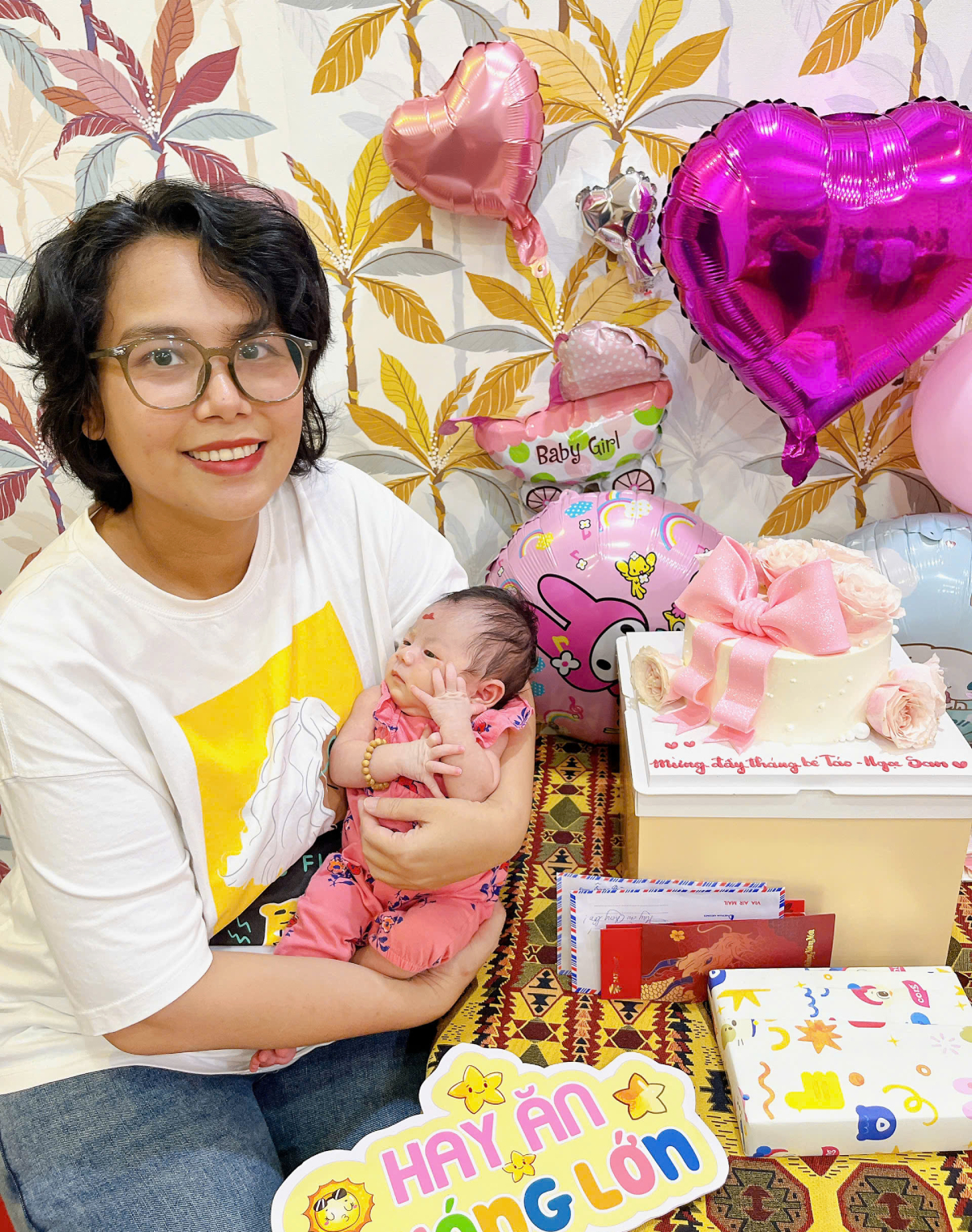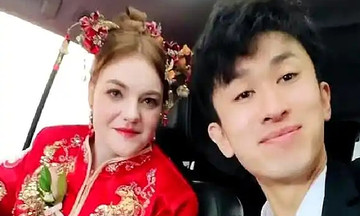Minutes later, she posted on social media, "This isn't just about a woman's right to be a mother, it's about a child's right to grow up in a complete family,".
Previously, single women in Vietnam could only freeze their eggs and undergo in vitro fertilization (IVF) with a doctor's recommendation. However, under Decree 207, effective from 1/10, they can proactively pursue these procedures without requiring permission and can receive donated sperm, embryos, and even eggs.
This change has sparked a heated debate. Some view it as a humane step forward for women's reproductive rights, while others worry about the psychological, ethical, and societal implications.
Thu Uyen opposes the new policy. She fears it normalizes childbirth outside of marriage, diminishes the role of men in families, and places the financial and childcare burden solely on women. She cited studies suggesting children raised in single-parent households are more likely to repeat the pattern.
"Everyone has a natural need to know their origins. IVF erases half of that from the start," she said.
Thuy Quynh, 28, who works at a multinational company in TP HCM, also expressed concerns. She worries the policy could commodify women's bodies, facilitate illegal surrogacy, and raise questions about the legitimacy of children born through these methods.
Quynh believes egg freezing and IVF aren't magic solutions for single women. She pointed to the risks of hormone injections and the possibility of undetected genetic defects in donated sperm. "With lax regulations, a man could donate sperm multiple times in various places. Who knows how many children with the same father but different mothers there could be out there?", she said.
According to Quynh, women don't lack the "raw materials" for conception, but rather the necessary conditions for raising a child, such as financial stability, a supportive family environment, and ample love.
"I really don't understand, after this decree, are women or men the ones who are devalued?", Quynh asked.
 |
Doctor Thuy Duong consults with a single woman seeking IVF, 7/2025. Photo: Provided by the individual |
Dr. Pham Thi Thuy Duong, Head of the IVF Hong Ngoc Fertility Center (Hanoi), views Decree 207 as a significant advancement in reproductive rights for Vietnamese women and provides a clear legal framework for medical facilities.
"This isn't about leniency; it's about equal opportunity for single women to realize their dream of motherhood in Vietnam, rather than seeking options abroad with legal risks and higher costs," she said.
According to Dr. Duong, the sperm, egg, and embryo donation process adheres to strict anonymity. Each sample is used for only one single woman or couple. Donors must be healthy, under 35 (if female), and undergo comprehensive health, genetic, and infectious disease screenings.
In her years of practice, Dr. Duong has witnessed many women grappling with the conflict between their desire for motherhood and societal expectations. They possess love and responsibility; what they lacked was permission.
"This isn't just a healthcare policy. It's a feminist statement. Motherhood is a right, not a privilege," Dr. Duong affirmed.
Dr. Khuat Thu Hong, Director of the Institute for Social Development Studies (ISDS), agrees. She explained the decree is part of a strategy to address Vietnam's changing demographics, including low birth rates, delayed marriages, singlehood, childlessness, later-in-life childbirth, and single motherhood.
"This isn't mandatory, but it offers another option for women who want it," she said. "If you don't like it, get married and have children the traditional way. There's nothing to argue about here,".
However, this policy creates a new landscape of single mothers and fatherless children. Dr. Hong recommends authorities prepare support systems, including social services, preschools, healthcare, education, and efforts to shift societal perceptions. She believes the single motherhood trend may not surge dramatically but will be sustained.
"A child born this way is not at fault. They deserve equal treatment and care like any other child," she emphasized.
Regarding concerns about the commercialization of women's bodies through surrogacy, Dr. Hong acknowledged it's a pre-existing issue, not a direct consequence of the decree. However, controlling it is challenging due to significant financial interests, highlighting the importance of ethics and law.
Experts point out Vietnam isn't alone in facing this question: Should single women have full autonomy over their reproductive choices?
In Japan and South Korea, the answer has been "yes" for years, accompanied by financial support. Meanwhile, China maintains a conservative stance, prohibiting single women from freezing their eggs, arguing it contradicts traditional family values and could slow the birth rate.
 |
Duong Thanh Xuan, in Nha Trang, chose not to marry and had a child in 2024. Photo: Provided by the individual |
Even before the law changed, many single Vietnamese women were taking control of their reproductive choices. At Hanoi Medical University Hospital's Center for Reproductive Support and Tissue Transplantation, around 100 women freeze their eggs annually, mostly unmarried. The Post Office Hospital currently stores eggs for about 350 women, receiving 5-7 new cases monthly.
VnExpress interviewed dozens of women who froze their eggs or had children independently, without waiting for a "prince". Thanh Lieu, 30, a freelancer in Hanoi, spent 60 million VND to freeze her eggs upon turning 30, plus a 7 million VND annual storage fee. She's not considering marriage yet but wants to preserve her eggs at their prime.
Some seek IVF due to same-sex relationships, like Thu Trang and her "boyfriend" in Thai Nguyen, or Kim Hoang and her "girlfriend" in Vung Tau. Others embark on this journey after divorce and infertility, like Ngoc Ha (Ha Dong). Some face illnesses, like Bich Phuong (Hung Yen), physical limitations, like Dieu Thuy (Hue), or reject marriage, like Thanh Xuan (Nha Trang). Each has a unique story and pain, but they share a desire for motherhood.
Bich Phuong recalled that in 2023, to undergo IVF, she had to obtain permission from her workplace, prove her single status and illness. Her son faced gossip upon birth.
"I hope with the new decree, my son won't be looked at differently anymore," she said.
Phan Duong












